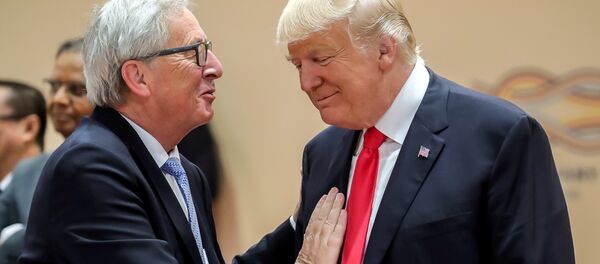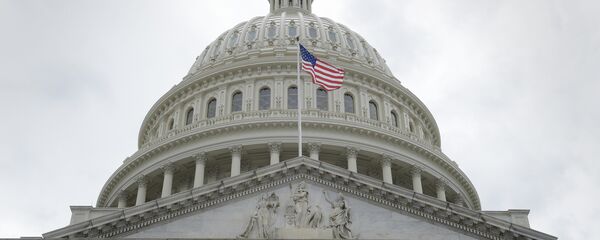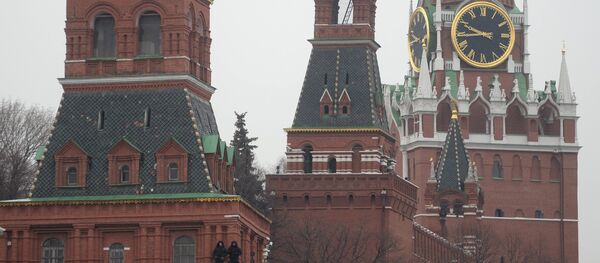"The action by the Congress to put these sanctions in place and the way they did it, neither the president nor I were very happy about that," Tillerson said.
#US diplomats begin downsizing as #Russia retaliates for sanctions pic.twitter.com/mVcIII1LtS
— CGTN (@CGTNOfficial) 2 августа 2017 г.
"We were clear that we didn't think it was going to be helpful to our efforts, but that's the decision they made, they made it in a very overwhelming way. I think the President accepts that, and all indications are that he will sign that bill and then we'll just work with it…. We can't let it take us off track trying to restore the relationship," he added.
Trump administration sends conflicting signals on Russia sanctions https://t.co/la8VGl4mbG pic.twitter.com/MGytxv3d47
— Reuters U.S. News (@ReutersUS) 2 августа 2017 г.
In an interview with Sputnik, Russian political analyst Viktor Olevich said that the US Administration's displeasure with the sanctions bill does not indicate that the White House has a positive attitude towards Russia.
"When Tillerson said that Trump was 'not very happy' about the bill but that he would sign it anyway, it was not an attempt to justify himself before Russia," according to Olevich.
Germany Urges EU Retaliation for US "Russia" Sanctions https://t.co/v4T9yYgk8o pic.twitter.com/OjlVUpA2Lm
— Russia Insider (@RussiaInsider) 2 августа 2017 г.
"It is [nothing but] a pragmatic view that this bill limits the ability of the US President to make decisions on sanctions against Russia, Iran and North Korea on his own. This is an unprecedented case in American history given that the legislative authority assumes control of the sanctions regime's future, depriving the president of initiatives in this area. No president can rejoice that his power is limited," Olevich said.
At the same time, he added that "this does not mean that Trump or Tillerson was somehow particularly positive about Russia" given a whole array of unfriendly steps toward Moscow that the new US Administration has taken in the past six months, including those related to Russian diplomatic property in the US and Syria.
In his opinion, despite the fact that the US President theoretically has different options for reacting to the anti-Russian sanctions bill, he has, in fact, no real choice.
"Trump had three options. The first one is to sign the bill [into law] which is most likely to take place. The second option is neither ink nor veto the document which would, however, in that case become law in ten 10 says, according to the US Constitution. The third option is to veto the bill but given the Senate's and the House of Representatives' support of the bill, the veto would be immediately lifted," Olevich added.
"Trump knew full well that if he vetoed the bill, it would still become law and he would be accused of everything, in particular, of acting to the detriment of the US and in line with Russia's interests. In such conditions, Trump had no other choice and it was clear that he would sign the bill," Olevich concluded.
The Senate approved the bill by 98 votes to two and the House of Representatives by 419 votes to three – both majorities were far larger than the two-thirds ended to override any veto from President Donald Trump.
The bill slaps new financial sanctions on Russia, while also imposing additional restrictive measures against the Iranian missile program and the shipping industry of North Korea.
On Monday, Vice President Mike Pence, speaking on a visit to Georgia in the Caucasus, said Trump would sign the measure into law "very soon." In addition to imposing new sanctions on Russia, Iran and North Korea, the legislation limits Trump's ability to lift current anti-Moscow restrictions.
On Wednesday, Russian presidential spokesman Dmitry Peskov said that the statements on the issue of the anti-Russia sanctions that come out of the White House are "somewhat contradictory," adding that Moscow is waiting for a statement from President Donald Trump.





